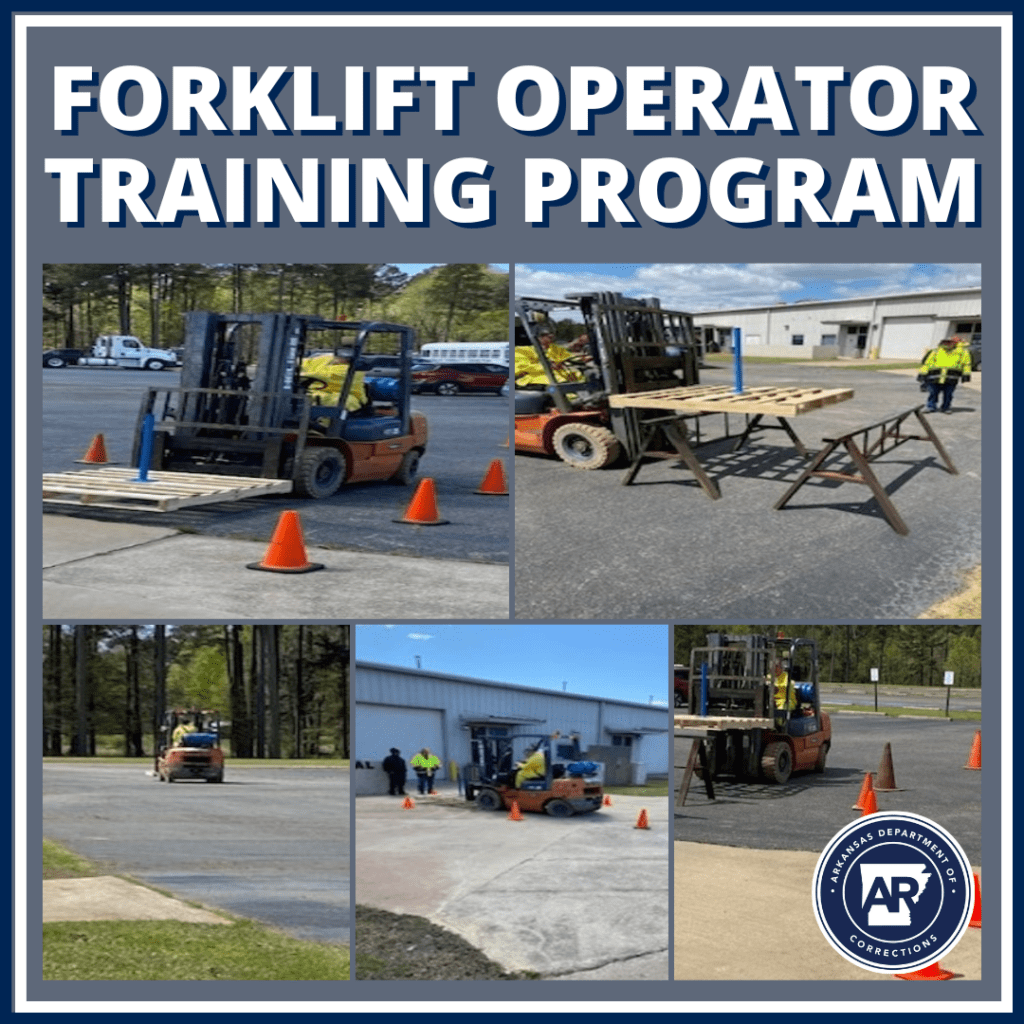In 2020, The Arkansas Department of Corrections partnered with the University of Arkansas Hope/Texarkana. This partnership has helped to break down the employment barrier for offenders reentering the community. Since 2020, we have had 40 individuals enroll in the class and became certified forklift operators – 17 from the Texarkana Regional Correction Center and 23 from the Southwest Arkansas Correction Center.
A summary of the program is below:
Course information: This course provides formal classroom instruction with evaluation and practical hands-on training with evaluation in accordance with the Occupational Safety and Health Administration (OSHA) standards. Completing both portions of the training results in the issuance of a forklift operator training certification card valid for 3 years. OSHA requires the employer to ensure that every powered industrial truck (forklift) operator is competent in the operation of a truck prior to operating as proven by the successful completion of the required training. This course focuses on the required elements of a forklift operator training program outlined in the OSHA forklift standard, 29 CFR 1910.178. The classroom instruction element provides general information on all types of forklifts and is followed by a written examination. The practical hands-on training provides specific instruction on the forklift operated by the trainee and is followed by an evaluation of performance. Training certification is issued for successful completion of both elements of the training process. To be legally employed as a forklift operator in any state in the U.S, a person must be at least 18 years of age and obtain certification.
The general classroom training covers these truck-related topics:
- Operating instructions, warnings, and precautions for the types of truck the operator will be authorized to operate
- Differences between operating a forklift and driving an automobile
- Truck controls and instrumentation: location, functions, and operation
- Operation of the engine or motor
- How to steer and maneuver the machine
- Visibility when operating the lift, including limitations due to different loads
- Operation, limitations, and precautions of the fork and other attachments
- How to find the capacity of the machine
- Vehicle stability
- Routine vehicle inspection along with any maintenance required of the operator
- Refueling or recharging procedures and precautions
- Surface conditions and how they differ and any associated stability concerns
- How to safely manipulate the load including any stacking that will occur
- Pedestrian traffic that may enter the work area
- Narrow aisles and other restricted places
- Hazardous locations where the forklift will be used
- Sloped surfaces such as ramps where the lift ruck could become unstable
- Confined spaces or environments lacking adequate ventilation that could result in a buildup of carbon monoxide or exhaust


